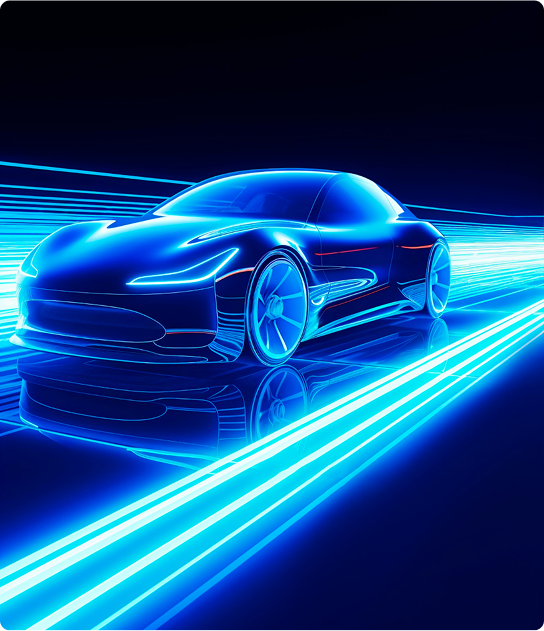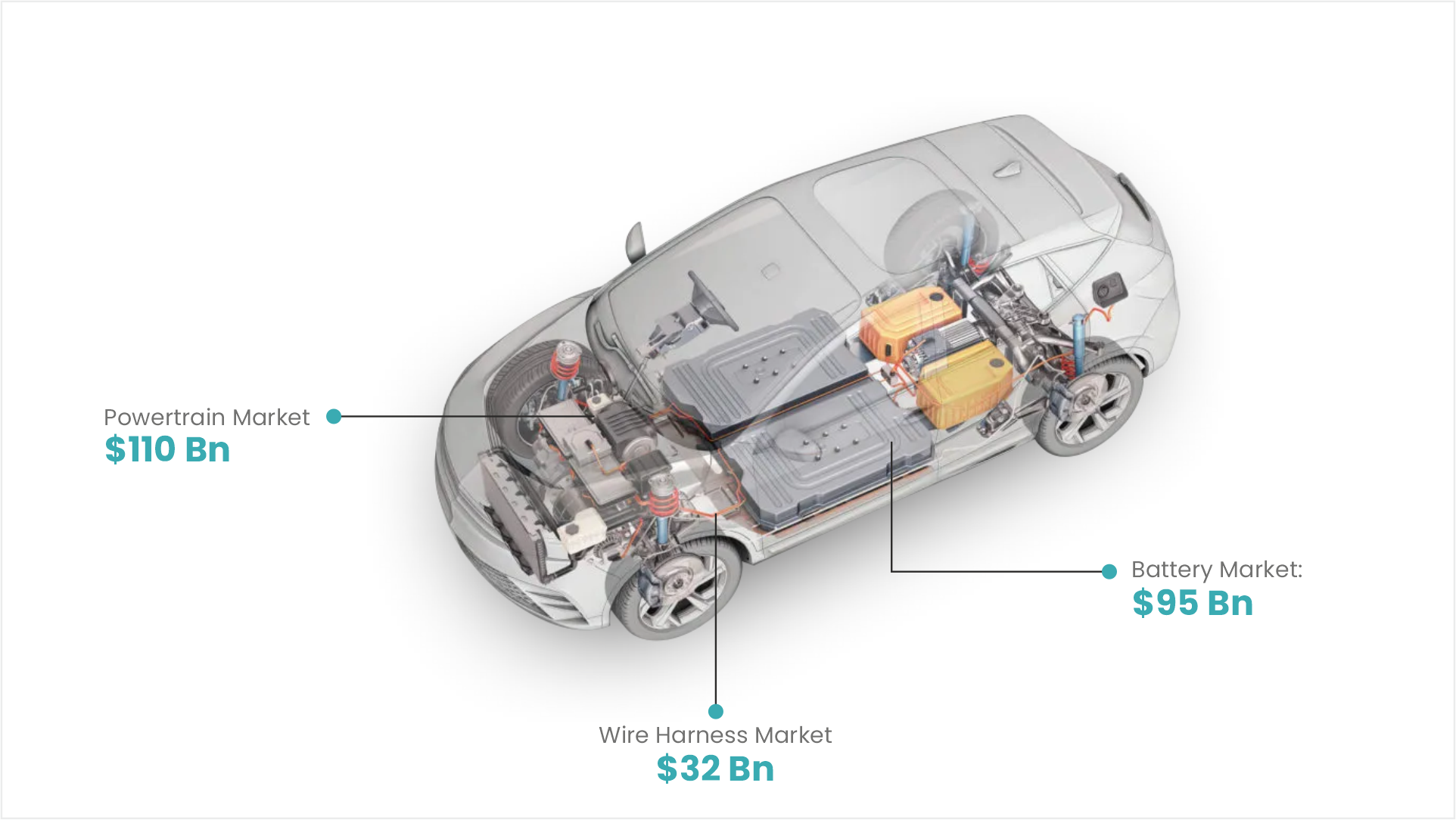EVs offer 30-80% lower fuel costs and up to 60% less maintenance than petrol cars. In China, two-thirds of 2024 EVs were already cheaper than their ICE equivalents, subsidy-free.
Lighter on drivers’ pocket, a powerful economic incentive driving mass market adoption.
Instant torque and quiet drives.
Over 20 nations target ICE bans by 2035. Governments are injecting billions into incentives and charging networks
As a top emissions source, transportation faces immense pressure. EVs can offer about 45% reduced lifecycle carbon emission.


The gas station of tomorrow is being built today. In 2024 alone, north of 1.3 million public charging stations were added globally. Are you investing in the vital network powering the EV future, or letting others claim prime locations?
The heart of the EV is the battery. From raw materials to advanced cell production, this sector is a hotbed of massive investment.
The demand for lithium, cobalt, nickel, and graphite is skyrocketing.
EVs are transforming energy consumption. Be a part of the smart grid evolution, where vehicles become mobile energy storage units, integrating seamlessly with solar and wind power.

From smart charging algorithms to autonomous driving, the digital brain of the EV is an opportunity for groundbreaking software and AI solutions.
Traditional automotive suppliers are retooling for electric powertrains and electronics. Are you adapting your offerings for this new era?
Businesses are electrifying their fleets for cost savings and sustainability. Unlock the potential of optimized EV logistics and fleet services.
The circular economy is here, turning end-of-life EV batteries into profitable energy storage solutions and reclaiming valuable materials for new production.
Strategies and insights shaped exclusively for your business’s distinct needs.
Comprehensive reports tapping
every facet of
your
target
market.
Intelligent research to help you source the best materials at
best
cost.
 Case Studies
Case Studies